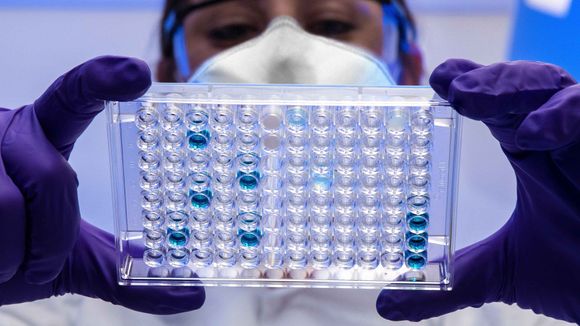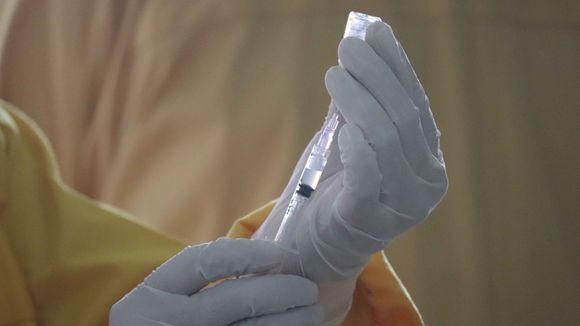What is Epstein-Barr virus?
Epstein-Barr virus (EBV) belongs to the group of herpes viruses and causes the disease called infectious mononucleosis. It is mostly transmitted through saliva and, moreover, persists as a latent infection in human B-cells. These cells, also known as B lymphocytes, are a type of white blood cell of subtype lymphocytes. They function in the humoral immune response of a person's adaptive immune system. [ref. 1]
Approximately 90 to 95 percent of all people become infected with this human herpes virus until they reach adulthood, according to clinical portal UpToDate. It is assumed that humans are the main reservoir and source of Epstein-Barr virus, as antibodies against it have been demonstrated in all population groups, with a global spread; approximately 90 to 95 percent of adults were ultimately EBV seropositive. [Ref. 2]
In children, the virus usually causes asymptomatic or very mild infection, but in teenagers and young adults Epstein-Barr can cause infectious mononucleosis, more commonly known only as "mono".
Although Epstein-Barr is a common virus, there is evidence to suggest that infections with the virus are a risk factor for multiple sclerosis, a much less common condition with a striking effect on the central nervous system. [ref. 3]
What is multiple sclerosis (MS)
Multiple sclerosis (MS) is a disease that affects the central nervous system, including the brain and spinal cord. In multiple sclerosis, the body's immune system mistakenly attacks our myelin, the protective shell around nerve fibers. Destruction of myelin leads to "sclerosis" or scarring. This process also disrupts the ability of nerve cells to transmit signals in the form of electrical impulses.
Also, multiple sclerosis is an autoimmune disease. This means that "for some reason, the immune system acts incorrectly and becomes intolerant to its own central nervous system," as Dr. Karen Blitz, director of multiple sclerosis care center North in New York City, points out.
Some of the well-known symptomsy of MS are:
- Numbness or weakness that can appear on one side of the body, or in the legs or torso.
- The sensation of electric shock when moving the neck, also known as the "syndrome of Lermit".
- Lack of coordination or unstable walking, shaking.
- Blurred or double vision. Also partial or complete loss of vision of one eye at a time.
- Pain or tingling in different areas of the body.
- Dizziness and fatigue.
- Speech problems.
MS as complication of viral infection according to scientists from Harvard Medical School
A new study published in the Science portal by a Harvard Medical School research team suggests that multiple sclerosis is a complication of infection from the Epstein-Barr virus. This position is supported by a large set of data collected over two decades by US military personnel. Circumstantial evidence points to links between Epstein-Barr, an endemic and latent infection, and the onset of the disease found in up to 95% of the population.
Alberto Ascario - one of the authors of the study and his team found this exceptional sample in the records of the Serum Repository of the Ministry of Defense (DoDSR). All active personnel from U.S. military are required to present a blood serum sample at the beginning and then every two years of service. Primarily designed to detect HIV, DoDSR is upgraded to a huge abundance of biological data, made up of over 62 million serum samples taken from over 10 million individuals.

"There is no other similar sample in the world," according to Aserio. Using it, his team was then able to identify military officers who showed antibodies to EBV. This is an indicator of infection during their first donation of a sample. In a demonstration of the ubiquitous nature of the Epstein-Barr virus, only 5.3% of the individuals surveyed that they were not infected. Separately, the research team looked for individuals who developed MS during their period of military service, noting 801 such cases that had EBV status records.
As many as 800 of the 801 MS cases occurred in individuals who had previously tested positive for Epstein-Barr virus. Thirty-five of these individuals tested negative at their first donation, and all but one then became positive (a process called seroconversion) before MS symptoms appeared, corresponding to a 97% seroconversion rate. Conversely, only 57% of the initially EBV-negative control population, which later did not develop MS, showed seroconversion. A positive result led to a 32-fold higher risk of later MS development, as opposed to a negative EBV result.
Another risk factor for MS is the presence of a set of genes that encode proteins found on the surface of certain immune cells. People with a certain set of these immune cells, who have a homozygous genotype for the HLA-DR15 allele, have a threefold increased risk of developing multiple sclerosis.









